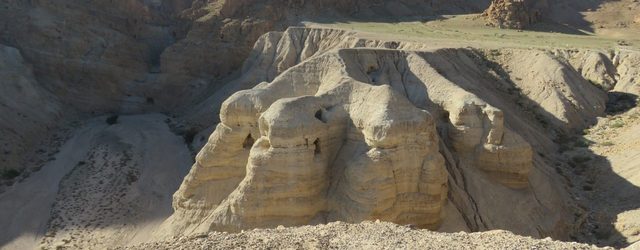ヨハネの福音書16章 苦難に勝利する
1.聖霊が遣わされる(16:1-16)
イエスが公に宣教活動をしたのは、約3年間と考えられています。それまで魚を捕る以外、何の変哲もない人生を送ってきた12人の弟子たちにとって、イエスと共に過ごした3年間は実にエキサイティングな日々であったことでしょう。人生は、出会いです。イエスに出会うことで、全く考えもしなかった人生へと進んでいくのです。しかしその興奮に満ちた旅路も、突如終わろうとしていました。イエスが去って行くと言うのです。
実際イエスに対する宗教家の敵意は極まって、イエスに何かが起こるし、自分たちの人生もこのままでは済まない、そんな不穏な雰囲気に彼らは包まれていました。困惑し、心乱す弟子たちに、イエスはご自分が去って行った後に、彼らの信仰を守り、働きを助けてくださる助け主、聖霊を遣わしてくださる、と語ります。
しかしその聖霊って、何でしょう。エホバの証人のようなキリスト教の異端は別として、キリスト教会は伝統的に聖霊もまた神であると教えてきました。父なる神、子なる神イエス・キリスト、そして聖霊なる神、この三つが分かたれることなく一つである「三位一体」の神という教理を信じ、守って来たのです。三位一体についてはまた別の機会にお話しするとして、この箇所には、その聖霊なる神の働きが明確に語られています。
まず聖霊は、8節、キリスト者を通して世の誤りを明らかにします。つまり、人間の罪を示す、人間が自らを神とし、神を認めようとしない事実に気づきを与える、と言います。また聖霊は、キリストの義を知らせる、イエスのことばが真実で、彼がまことに神の子であったことを明らかにします。そして最後に、11節、これが重要です。世を支配する者に裁きがあったことを明らかにします。つまりイエスが勝利したことを証しするというのです。信仰は先の見えない理想像の追求ではありません。信仰は、イエスの勝利に基づいた、祝福を掴むこと、祝福への招きへと進んでいくことです。もはや、私たちを誘惑する者、私たちを陥れる者は裁かれて、私たちは、新しい人生を先に進むようにと見守る神の愛の下に置かれているのです。
2.勇気を出しなさい(16:17-33)
さて17節、ヨハネは、この十字架前夜に、イエスのことばを弟子たちがよく理解できないでいた状況を伝えています。イエスは、旧約聖書に預言されたとおり、約束の救い主として十字架におかかりになり、復活し、罪と死の力を打ち破られました。今の私たちは、それを理解することができますが、当時の弟子たちには、言われたことを即座に理解するのは難しいことでした。それはまだ起こっていなかったからです。そして後に、復活のイエスが現れてエマオの途上の弟子たちに解説されたように、あるいは、ペンテコステの聖霊降臨の出来事が起こって弟子たちが天来の諭しを与えられたように、彼らには説明が必要なことであったのです。そこで彼らは聖霊を祈り求めるように勧められています(23,24節)。聖霊が、イエスに関するすべてのことを諭し教えてくださるからです。
最後に32節、イエスは、弟子たちが避けられない痛みと悲しみの中を通り、散らされること、そしてイエスが一人取り残されることを予告します。ヨハネの福音書が書かれた時代は、キリスト教会に迫害の嵐が巻き起こっていた時代です。その中で、イエスと同じように一人取り残された思いにあり、信仰を捨てる危機に立たせられていた者もいたことでしょう。であればこそ33節「世にあっては苦難があります。しかし、勇気を出しなさい。わたしはすでに世に勝ちました」と、勝利者イエスの言葉を繰り返す必要があったのです。キリストにあって無駄な苦難はなく、失望に終わる苦難もありません。では、今日も良き一日となるように祈ります。
John 16: Victory over Suffering
1. the Holy Spirit is sent (16:1-16)
It is believed that Jesus' public missionary work lasted for about three years. For the 12 disciples, who until then had led a simple life, except for catching fish, the three years they spent with Jesus must have been very exciting. Life is an encounter. Encountering Jesus can lead you to a life you never thought possible. But that exciting journey was suddenly coming to an end. Jesus was leaving.
In fact, the hostility of the religious people toward Jesus had reached such an extreme that they were in a disturbing mood: something was going to happen to Jesus, and their lives were not going to go on like this. To the perplexed and disturbed disciples, Jesus tells them that after He leaves, He will send the Holy Spirit, the Helper, who will protect their faith and help them in their work.
But what is this Holy Spirit? Aside from Christian heretics such as Jehovah's Witnesses, the Christian church has traditionally taught that the Holy Spirit is also God. It has believed in and adhered to the doctrine of the "triune God," the God the Father, the God the Son (Jesus Christ), and the God the Holy Spirit, who is one and indivisible. I will talk about the Trinity another time, but this passage clearly describes the work of God the Holy Spirit.
First, the Holy Spirit reveals the error of the world through the Christian in verse 8. In other words, he says that he shows man's sin and makes him aware of the fact that man makes himself God and refuses to acknowledge God. The Holy Spirit also makes known the righteousness of Christ, revealing that the words of Jesus are true and that he was truly the Son of God. And finally, verse 11, which is crucial. Verse 11 reveals that there has been judgment on the ruler of the world. In other words, Jesus testifies that He has triumphed. Faith is not the pursuit of an ideal image that cannot be seen. Faith is about seizing the blessing, about moving forward into the invitation to blessing, based on the victory of Jesus. No longer are those who tempt us, those who ensnare us, judged, and we are placed under the love of God who watches over us to move ahead in our new life.
2. take courage (16:17-33)
Now in verse 17, John tells of a situation on the eve of this crucifixion in which the disciples did not quite understand Jesus' words. Jesus went to the cross as the promised Savior, resurrected, and defeated the power of sin and death, as prophesied in the Old Testament. We can understand that now, but it was difficult for the disciples of that time to immediately understand what was being said. It had not yet happened. And later, as the resurrected Jesus appeared and explained to the disciples on their way to Emmaus, or as the Pentecostal event occurred and the disciples were given heavenly admonitions, they needed an explanation. So they are encouraged to pray for the Holy Spirit (vv. 23, 24). For the Holy Spirit admonishes and teaches them all things concerning Jesus.
Finally, in verse 32, Jesus foretells that the disciples will pass through inevitable pain and sorrow, that they will be scattered, and that He will be left alone. The time in which John's Gospel was written was a time when a storm of persecution was raging against the Christian church. In the midst of this, there must have been others who, like Jesus, felt left out and were in danger of abandoning their faith. That is why verse 33 says, "In the world you will have tribulation, but take courage. But take courage. I have already overcome the world," and it was necessary to repeat the words of Jesus the Victor. In Christ, there is no tribulation in vain, no tribulation that ends in disappointment. So, I wish you a good day today.
















